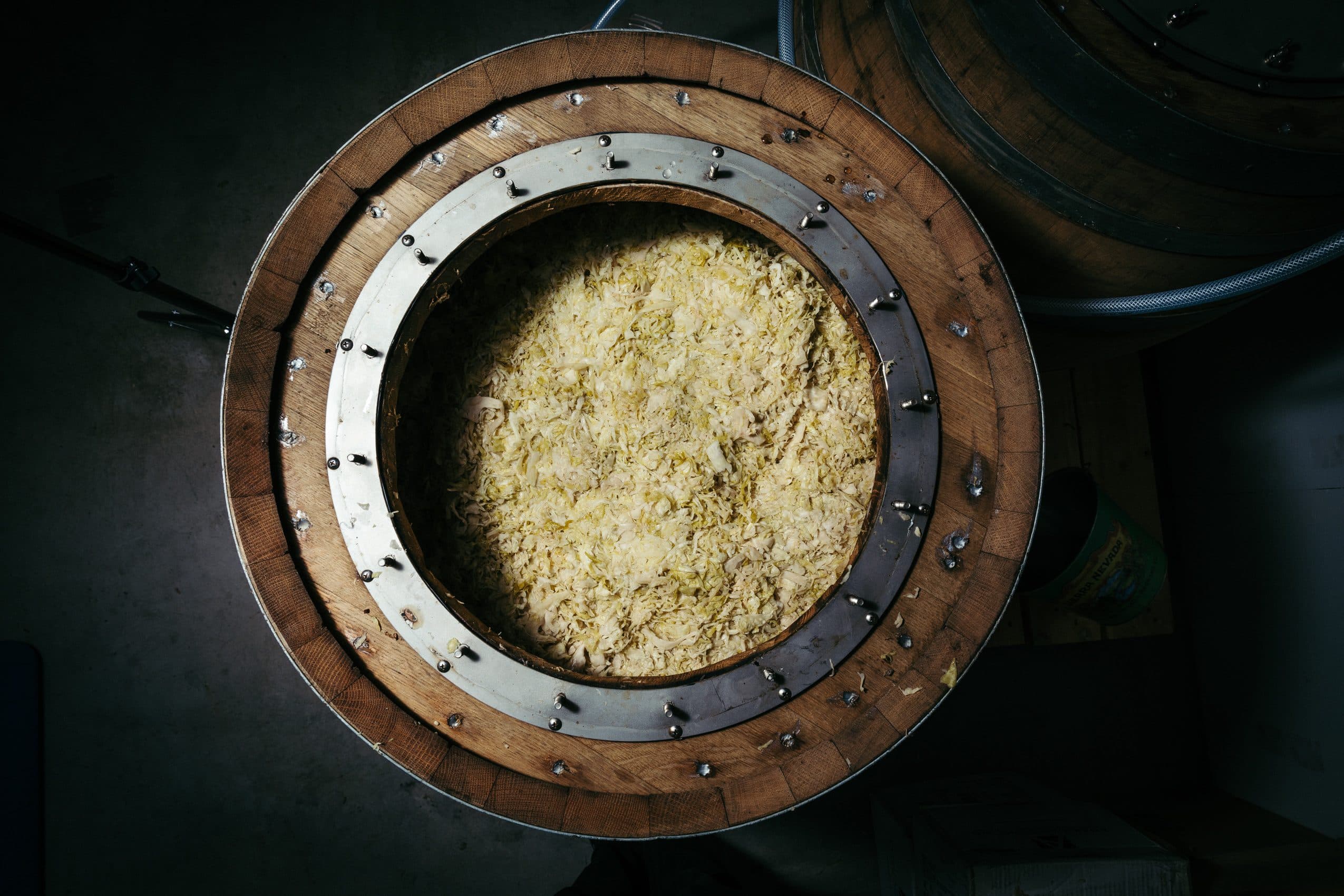One rowdy weekend down, one more Oktoberfest marathon to go.
Here in Chico, Calif., it’s our 10th year of bringing the Munich tents to stateside beer lovers. We go all out, and so do our guests.
Whether it’s festive attire—lederhosen, dirndl dresses, massive pretzel necklaces—or tall pours of German-American collaboration, these parties feel like a trip across the pond.
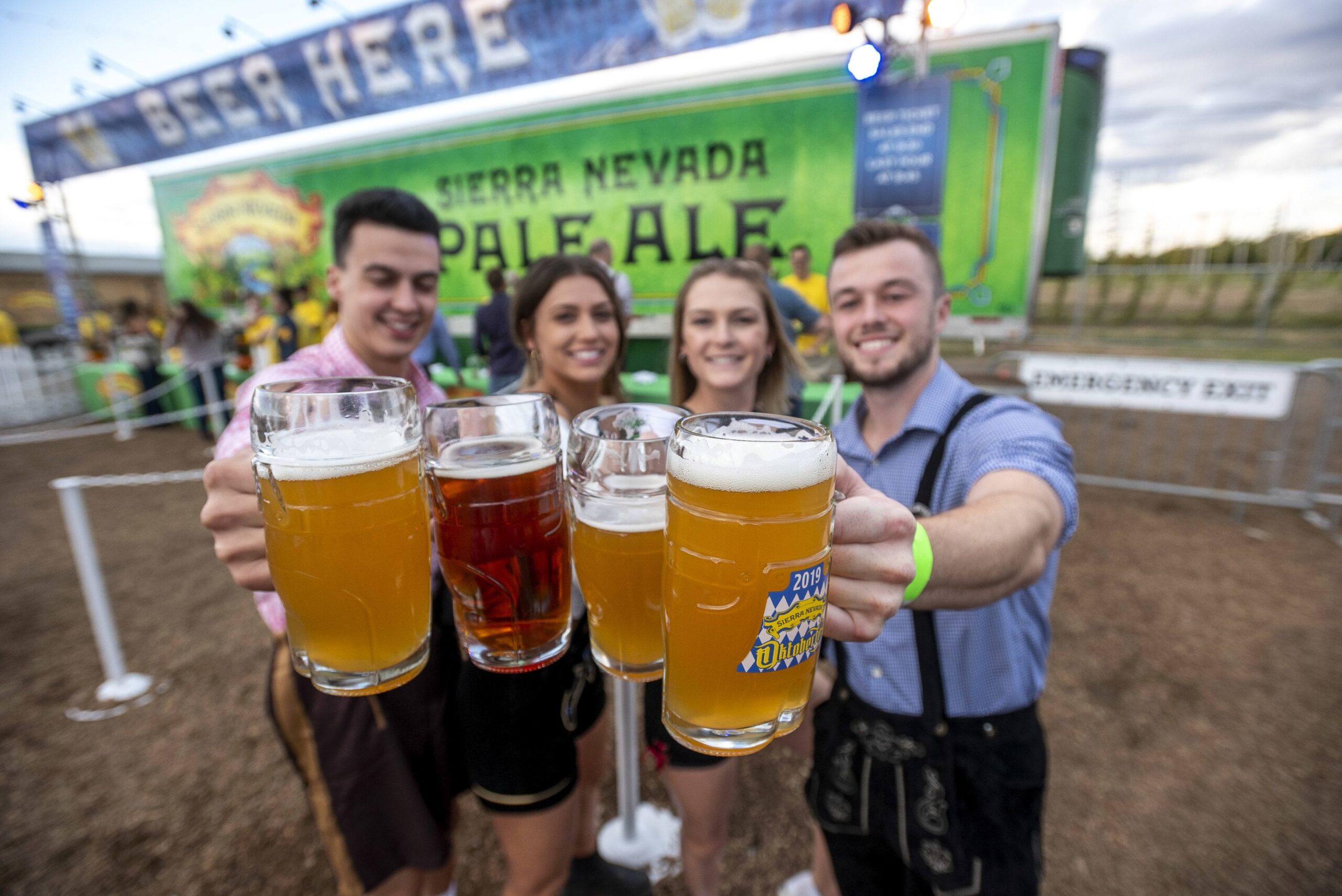

And you better believe we prepare an outright feast so no one goes hungry. Our own Taproom spearheads a buffet spanning hearty meats, various sides, and indulgent desserts.
Bratwurst is a no-brainer for the menu, and this year we gave special attention to a key sausage topping: sauerkraut. In simple terms, we “beerified” it, and it’s ridiculously good.
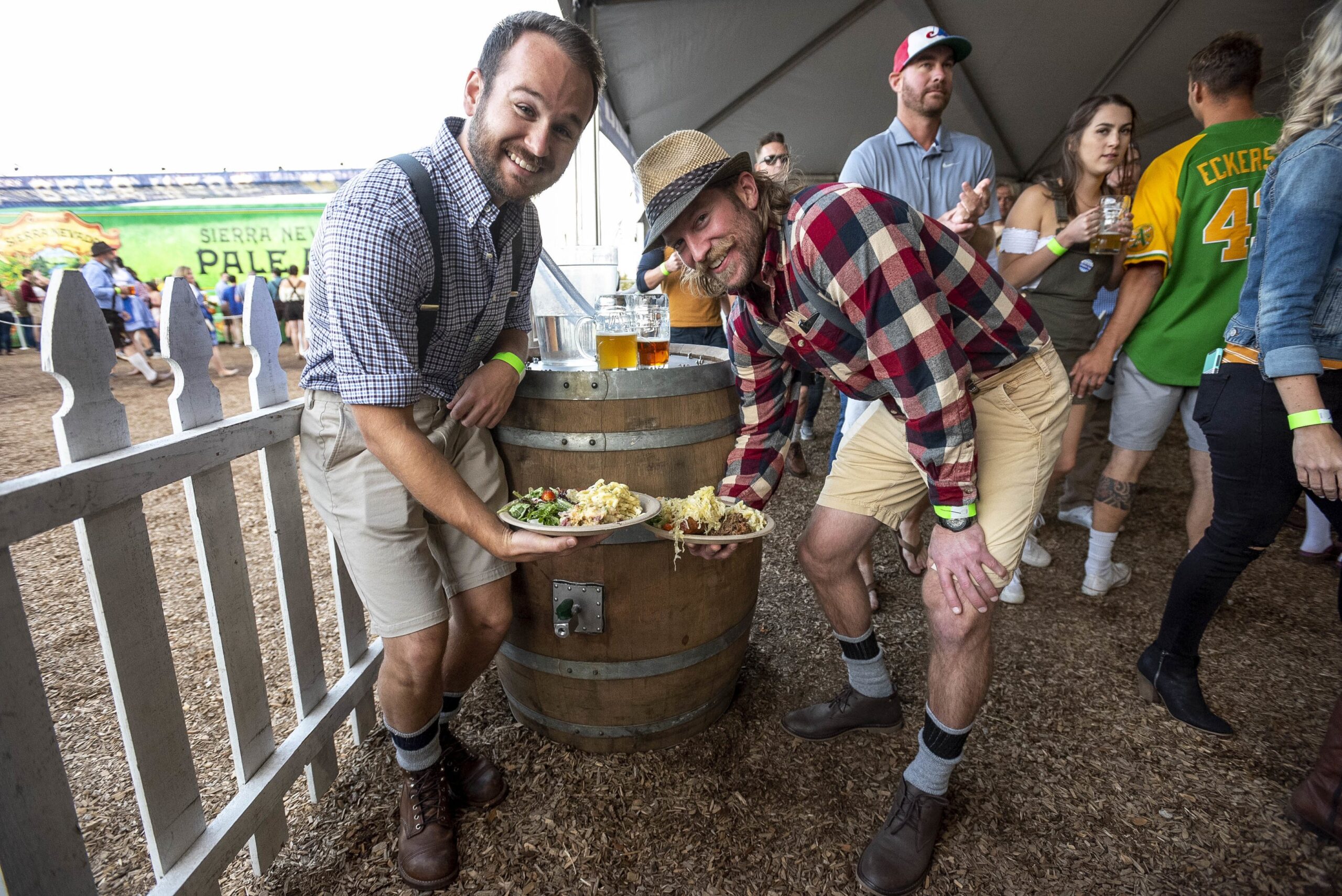
The sauerkraut fermented and aged for six weeks inside spent barrels we originally used toward our Estate Farmhouse Ale. The beer’s mild sweetness, hints of fruit, and refreshing tang pop from the crunchy texture of the cabbage. (And really, the kraut’s homegrown flavor goes even deeper, starting in our peach orchard.)
For our executive chef Dan Grice and his teammate Matt Shaughnessy, this kraut creation was a labor of love.
“It took us so long to do that,” Matt says. “Ten-hour day, a thousand pounds of frickin’ cabbage in there.”
To be exact, it was 1,100 pounds, and they prepped it (mostly) by hand. First, they cored each head of cabbage before running them through a shredder machine. That’s the easy part, Dan says. Then you add salt and press out the water from within the cabbage.
“The word massaged is usually used,” Dan says, “but we beat the heck out of it.”
The water is critical: fully submerging the cabbage creates an oxygen-free environment—no chance of rotting!
Freshly smashed, the half-ton of cabbage was ready for its barrel hibernation. Thankfully, Dan and Matt didn’t have to jam the veggies through the cask bungholes.
Instead, in-house craftsman Mike Harrloe modified the barrels, installing removable lids with food-grade gaskets, and converting the bungholes into sampling valves.
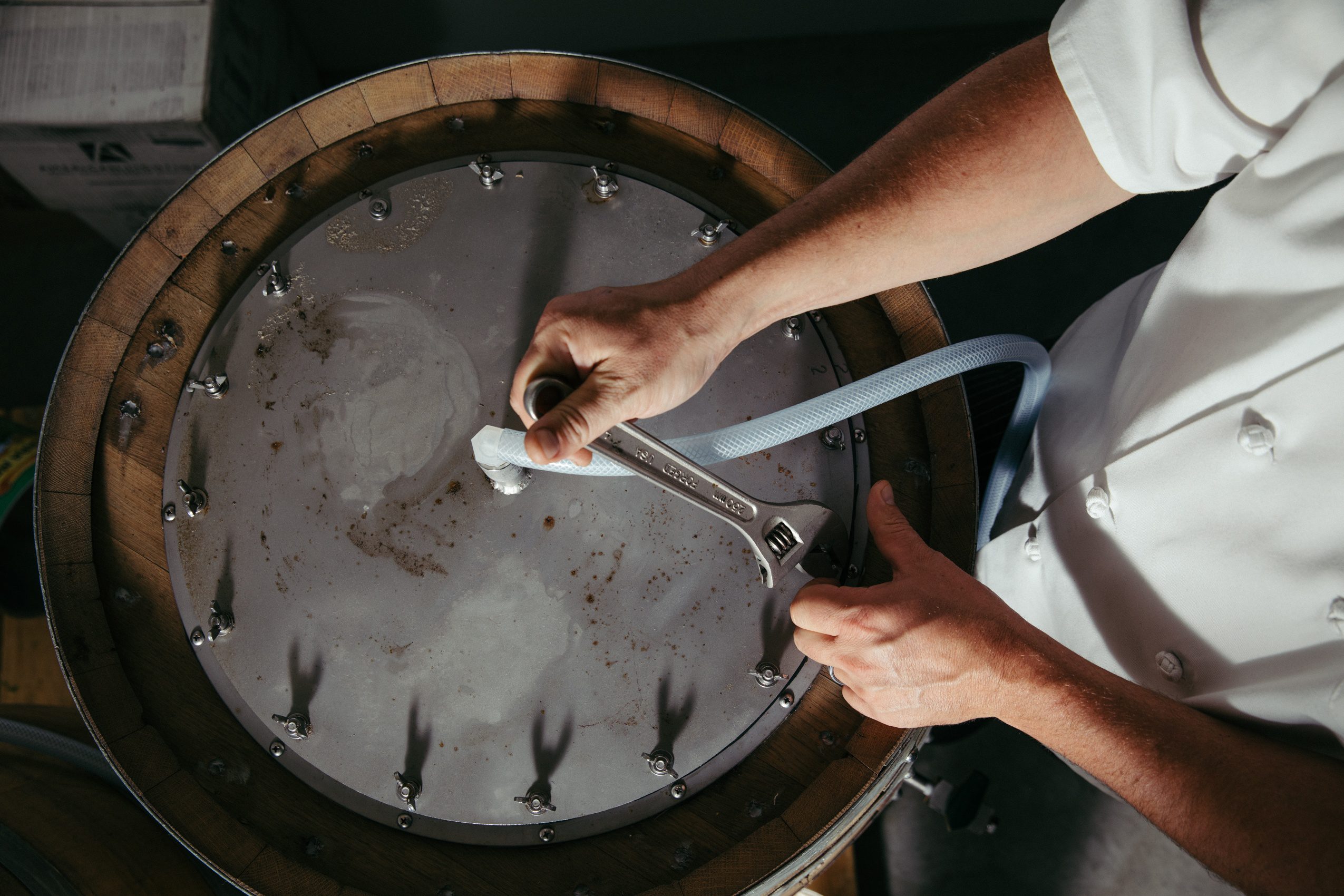
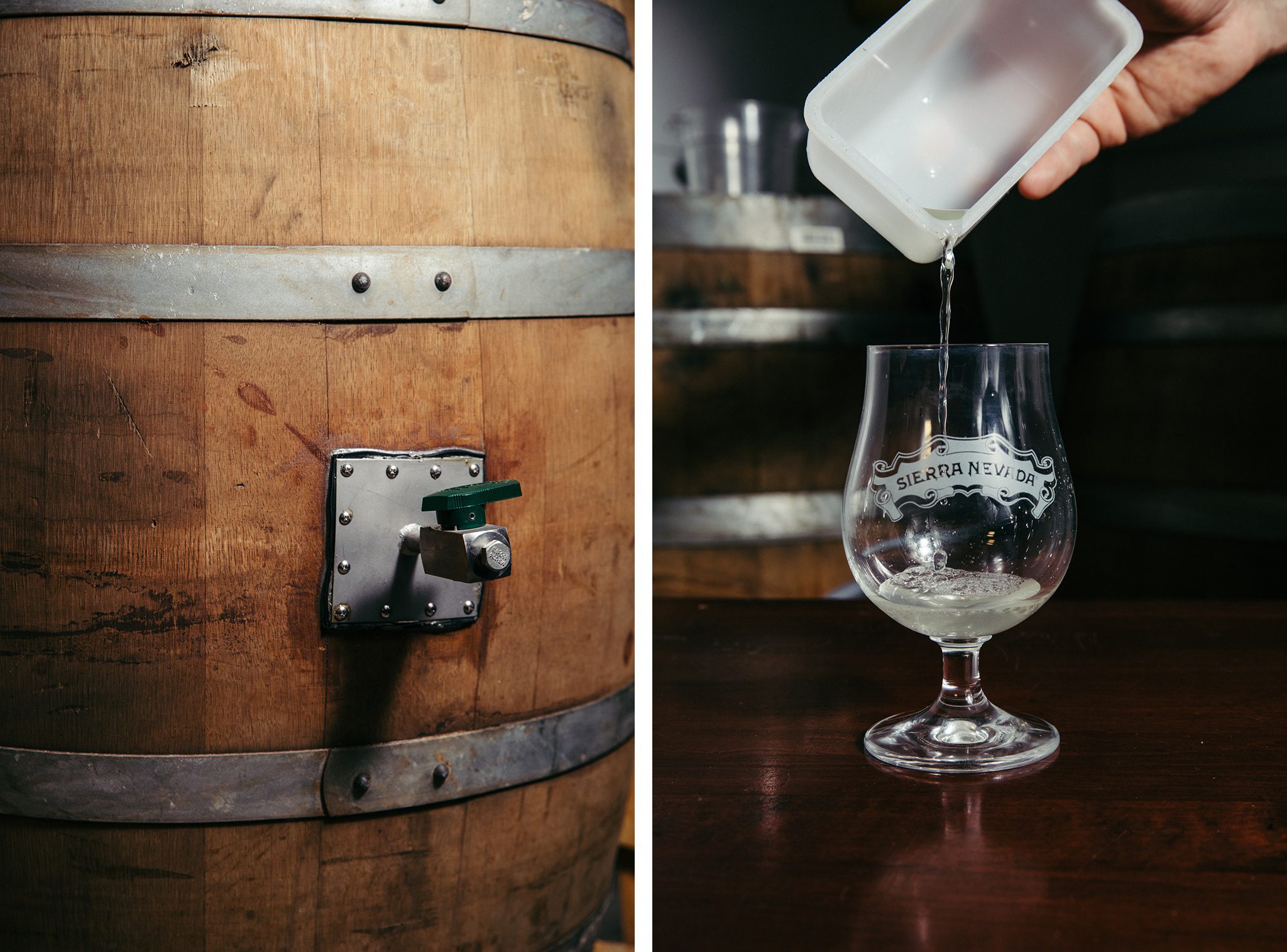
Dan and Matt loaded in the cabbage, added a quart of our sauerkraut “starter” per barrel—like sourdough starter for bread—and sealed the lids.
Dan collected “kraut juice” samples weekly, taking them to our quality laboratory for tests. The lab treats the juice like sour wort for a beer, making sure the pH and titratable acidity reflect a healthy fermentation.
In late August, Dan wondered what “total acidity” number we’d hit—the amount of acid present in a solution, measured as a percentage. (“I don’t know how high it can go,” he said. “I think if we can get to like 1.5%, it’ll be a really great kraut.”)
Well, it topped out at 1.62%—tart! For comparison, some commercial sauerkraut will exceed 2%, but in many cases, it’s added sugar or vinegar that increases acid output.
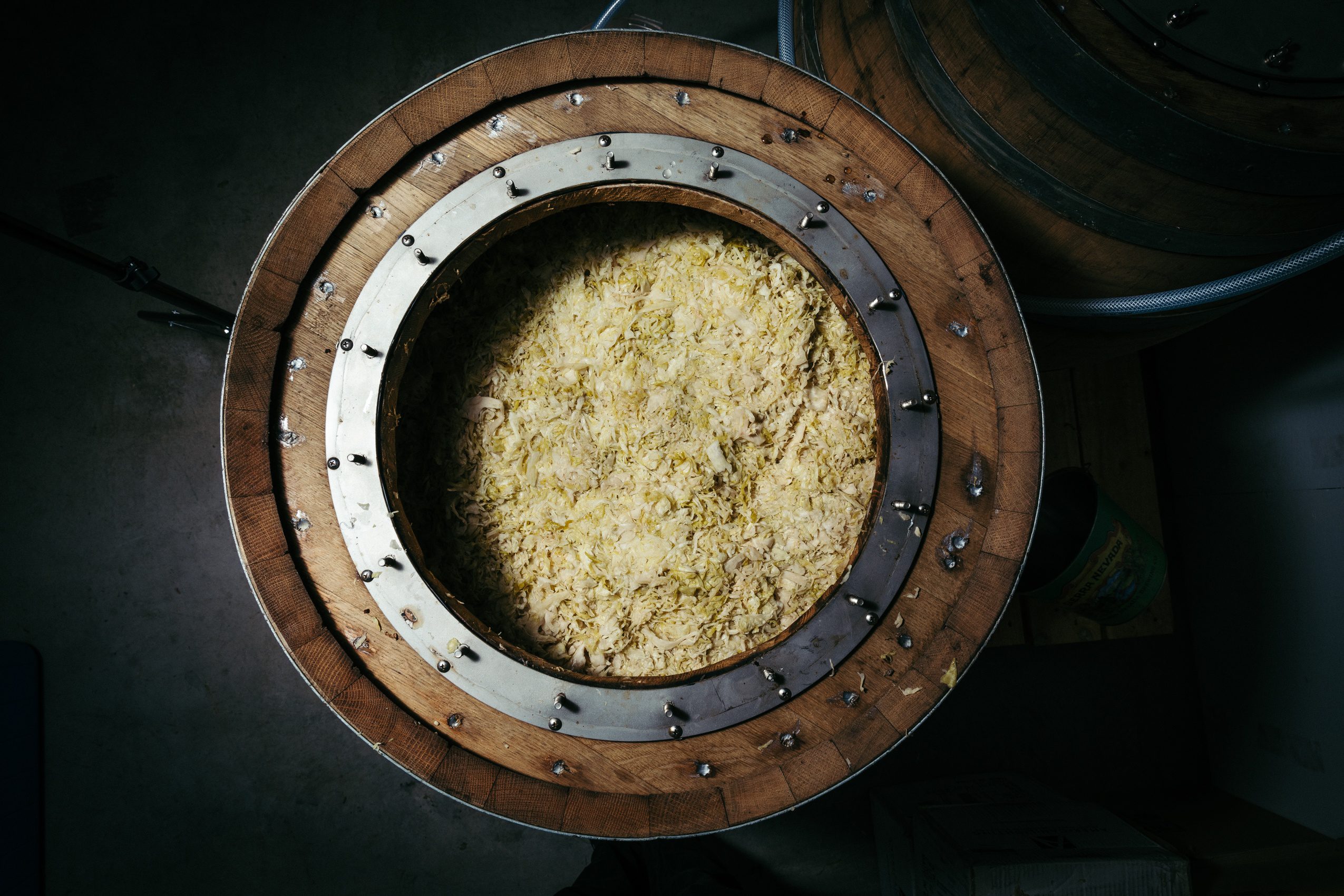
While we had no additives, our lead microbiologist Rachel Eidman says the acidity boost makes sense.
“Given that [the sauerkraut is] being fermented in wild beer barrels,” she says, “it’s not surprising that we would be picking up some other flavors and organic acids that could be contributing to the overall acidity.”
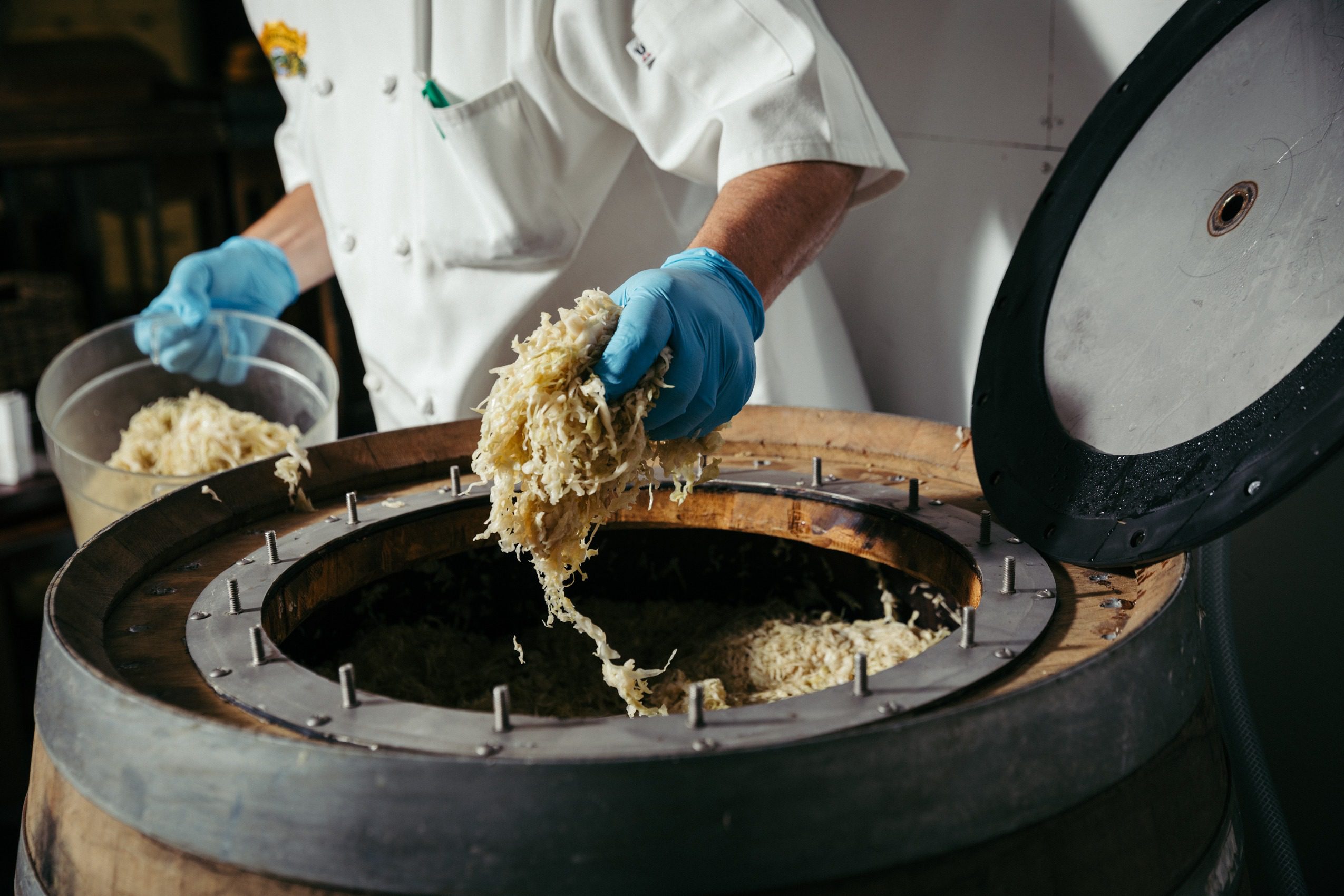
And these barrels aren’t the end of chef Dan’s kraut experiments.
“In the future I’m going to play with some more small batches to incorporate hops,” he says, “because I think that would just add really awesome flavor.”
Dan’s also eyeing root vegetables in our Estate garden to “shred and make a straight kraut with beets.”
For now, the final 6,400 Oktoberfesters should bring their appetites this weekend. Your cask of kraut awaits.
